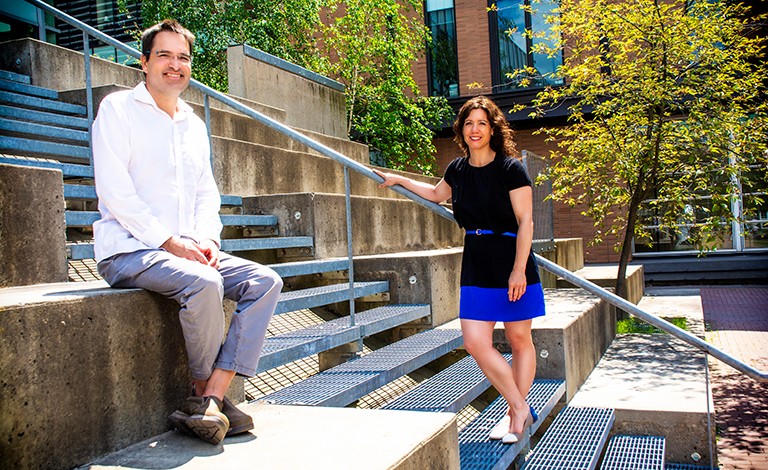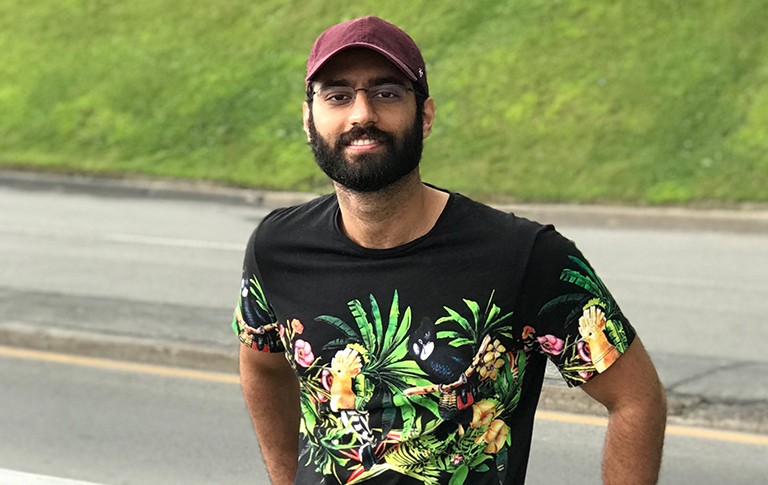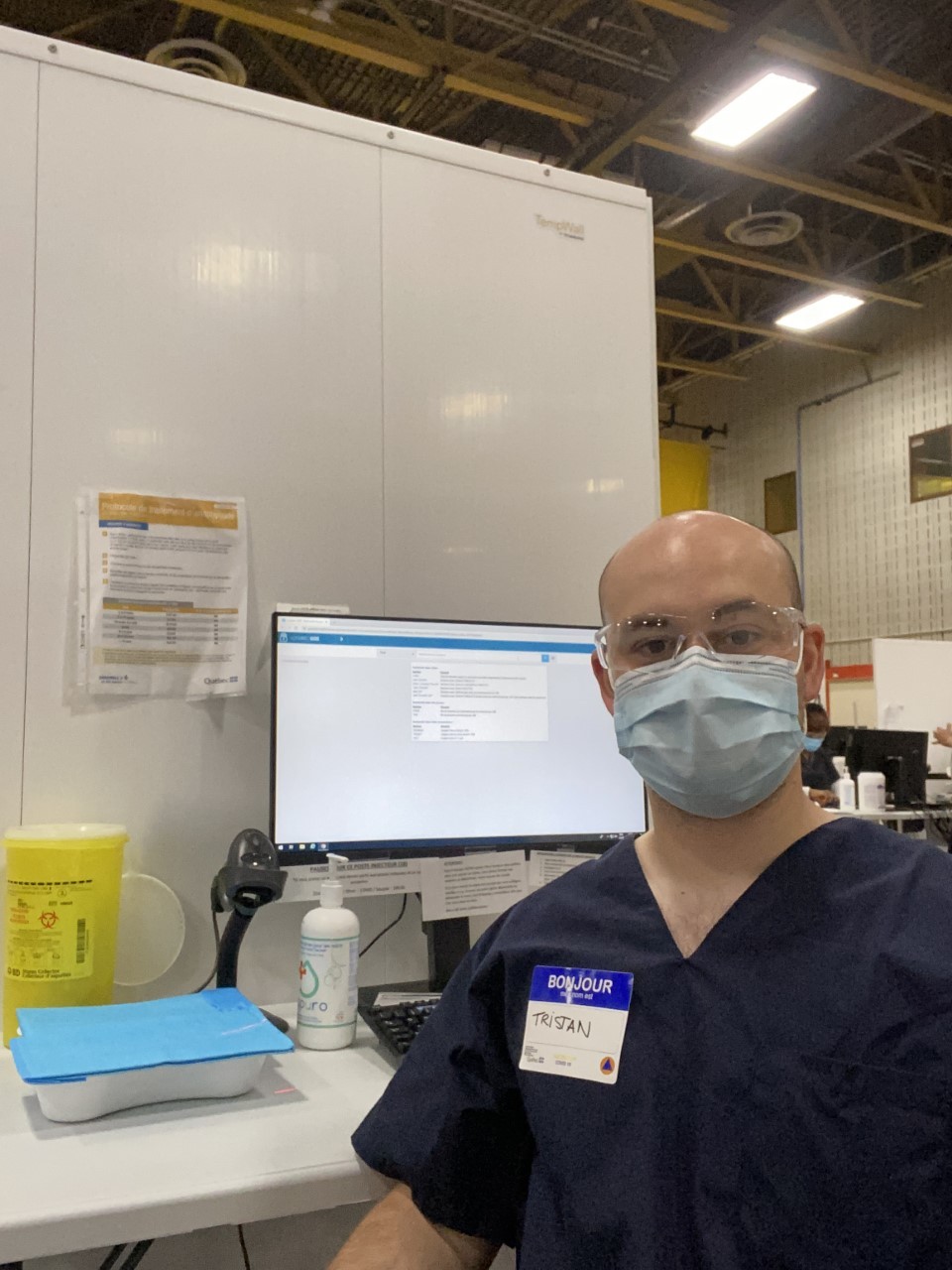Concordians step up to help administer COVID-19 vaccines
 Alain Leroux and Véronique Pepin from Concordia's Department of Health, Kinesiology and Applied Physiology
Alain Leroux and Véronique Pepin from Concordia's Department of Health, Kinesiology and Applied Physiology
It’s all hands on deck in Quebec as the goal of getting more people inoculated intensifies and many types of health professionals have been called on to assist with vaccinations. Enter Concordia athletic therapy and kinesiology students and faculty, who jumped at the unique opportunity to help out and put their studies to work.
Tristan Castonguay, who is pursuing a master’s in health and exercise science, worked as a hospital service aide last spring.
“Nurses and others have been working 24/7 since the first wave and they’re needed in hospitals and clinics. So now that we can actually help distribute resources in the system, it’s a big thing. If it’s two or three days a week but it allows others to take a break, we all have to do our part.”
The Department of Health, Kinesiology and Applied Physiology initially received the call to participate in the vaccination campaign from their professional associations, the Corporation des thérapeutes du sport du Québec and the Fédération des kinésiologues du Québec. The department immediately forwarded it to faculty and students in their second, third and fourth years, and graduate students from their professional associations.
 Second-year kinesiology and clinical exercise physiology undergraduate student Kasra Tehranimehr
Second-year kinesiology and clinical exercise physiology undergraduate student Kasra Tehranimehr
Building a ‘strong reputation’ for kinesiologists and athletic therapists
Alain Leroux, associate professor of health, kinesiology and applied physiology says he was eager to sign up. May 29 was his first shift as a vacinnator.
"Before starting my first shift, I received my practical training with another kinesiologist. The nurse who trained us was impressed with our knowledge of the human body. In fact, we both found the training easy,” he says.
Kasra Tehranimehr, a second-year undergraduate student in kinesiology and clinical exercise physiology, also signed up.
For Tehranimehr, the desire to help was personal. His father is 65 and considered high-risk — he’s had two cardiac surgeries and suffers from diabetes and high cholesterol. Just days after receiving his vaccine, two people Tehranimehr works with were diagnosed with COVID-19.
“God only knows what would’ve happened if he hadn’t gotten the vaccination,” Tehranimehr says. So, instead of getting paid for three days of work as a vaccinator, he asked to get paid for only two of them, opting to volunteer for the third day.
“I told the recruitment person it’s to pay my debt to the government to thank them,” he says.
 Master's student in health and exercise science Tristan Castonguay on site to administer the COVID-19 vaccine.
Master's student in health and exercise science Tristan Castonguay on site to administer the COVID-19 vaccine.
The department’s involvement in vaccination efforts comes as athletic therapists and kinesiologists are increasingly recognized as formal health-care professionals after more than two decades of fighting for this status.
Véronique Pepin is chair of the Department of Health, Kinesiology and Applied Physiology. She says the request for the department’s assistance in vaccine efforts, and the fact that kinesiologists and athletic therapists are being considered health-care professionals alongside other health-care workers, is acknowledgement of their standing and legitimacy.
“For us, it’s so heartwarming to see because we believe in these professions and we sort of took a leap of faith when we got in it because it wasn’t recognized back then,” Pepin explains.
“It’s nice to see that the efforts of the whole community of kinesiologists and athletic therapists have allowed us to build a strong reputation.”
Read more about Quebec’s COVID-19 vaccination campaign.


